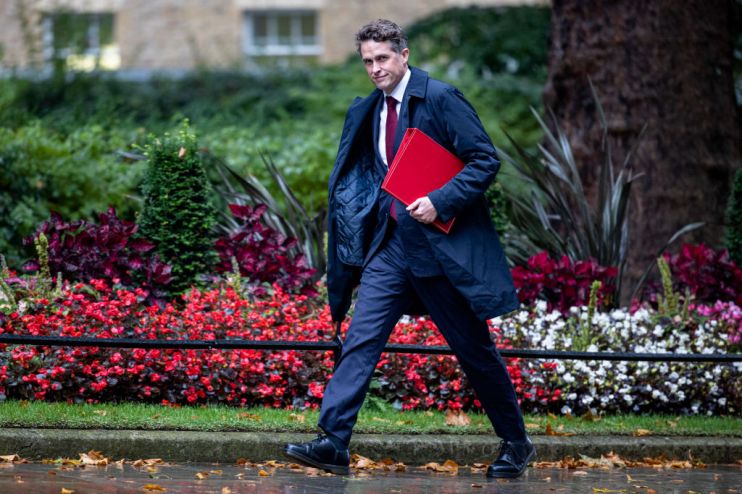Sunak needs to learn to fight for his decisions – if not for Gavin Williamson

Malcolm Tucker once reassured a hapless minister that their job was safe because it was too soon to fire them; “Sacked after 12 months – looks like you’ve f***ed up. Sacked after a week – looks like he’s f***ed up”. It’s apt that the behaviour of a man who seemed to yearn to star in The Thick of It has proven him right.
On Tuesday night, Gavin Williamson became the first minister to leave Rishi Sunak’s government following allegations of behind-the-scenes threats and bullying. But this was a scandal with few revelations: Williamson has twice proven to be both lousy and lazy as a departmental minister, but he was widely celebrated as an astute fixer within the party. The now former minister has even publicly joked about “pedalling secrets, dark arts… or even a threat”.
He was successful as both David Cameron’s PPS and Theresa May’s Chief Whip before managing Boris Johnson and Rishi Sunak’s successful bids for the Tory leadership. With his pet tarantula a baroque flourish, he had never hidden his delight in intrigue and gossip, nor his enjoyment for the rougher side of politics.
Given the difficult job Sunak faces in persuading a reluctant party to pass painful tax rises and spending cuts, there was a sound argument to bring Williamson in to help with party management. There was an even stronger argument to deny his services to Sunak’s enemies on the backbenches. Undoubtedly, over the next few weeks, more than a few arms will have to be twisted.
Yet when confronted with evidence of Gavin Williamson being Gavin Williamson, and sending threatening messages after being “snubbed” over invites to the Queen’s funeral, Sunak almost immediately capitulated. He called the comments “unacceptable”, emboldening Williamson’s many enemies to make more serious allegations, including him threatening to reveal personal information about MPs or telling a civil servant they should “slit their throat”.
Williamson’s sacking shows the diffidence that has become a pattern of the new prime minister’s behaviour. He spent the beginning of this week in Egypt after reconsidering his decision to stay away from the Cop27 environmental summit when it became clear that he would be seceding the stage to Boris Johnson. He bizarrely relegated announcing he would restore the moratorium on fracking to an obscure aside in his first Prime Minister’s Questions, rather than aggressively rolling out a popular policy. Likewise, his remarks upon becoming prime minister, where his references to both Johnson and Liz Truss understated his disagreements with them, making it harder for him to present himself as a clean break from his scandals or her economic chaos.
And then, of course, the continued, bizarre contortions surrounding Suella Braverman. Again, like with Williamson there was a legitimate argument to bring her back into the government. Her abrupt departure from Truss’s cabinet was largely due to disagreements over immigration policy. To be frank, there would be very few politicians left if every backbencher who swore at a bumbling whip had to resign or every minister who leaked information to backbench allies was fired. All Sunak had to do was place her return to the Home Office in the context of his broader reembrace of immigration restrictionism, making clear that he doesn’t view the leaks to Sir John Hayes as a resigning matter.
Instead, he is insisting on the absurd synthesis where everyone continues to pretend that Braverman should have resigned on October 19 and that her six days away from the frontbench was sufficient punishment for misbehaviour. As with Williamson the refusal to argue for his minister emboldened her enemies, with former party chair Jake Berry allowed to place the most negative spin on Braverman’s actions without fear of contradiction.
Boris Johnson would often make a song and dance about never shying away from a political brawl. Even until the last moment, he was telling rebels (which, lest we forget, amounted to most of his parliamentary party) they would have to “dip their hands in blood” to get rid of him. Although less colourful than her predecessor, Liz Truss bragged about being a “fighter not a quitter”. But neither’s boasts stopped their premierships being broken.
Sunak’s polish gives him a veneer of competence. But he has yet to break their habit of making unforced errors which forces retreats and u-turns under fire. If he wants to avoid their fates, he needs to discover both greater wisdom and resolve.
